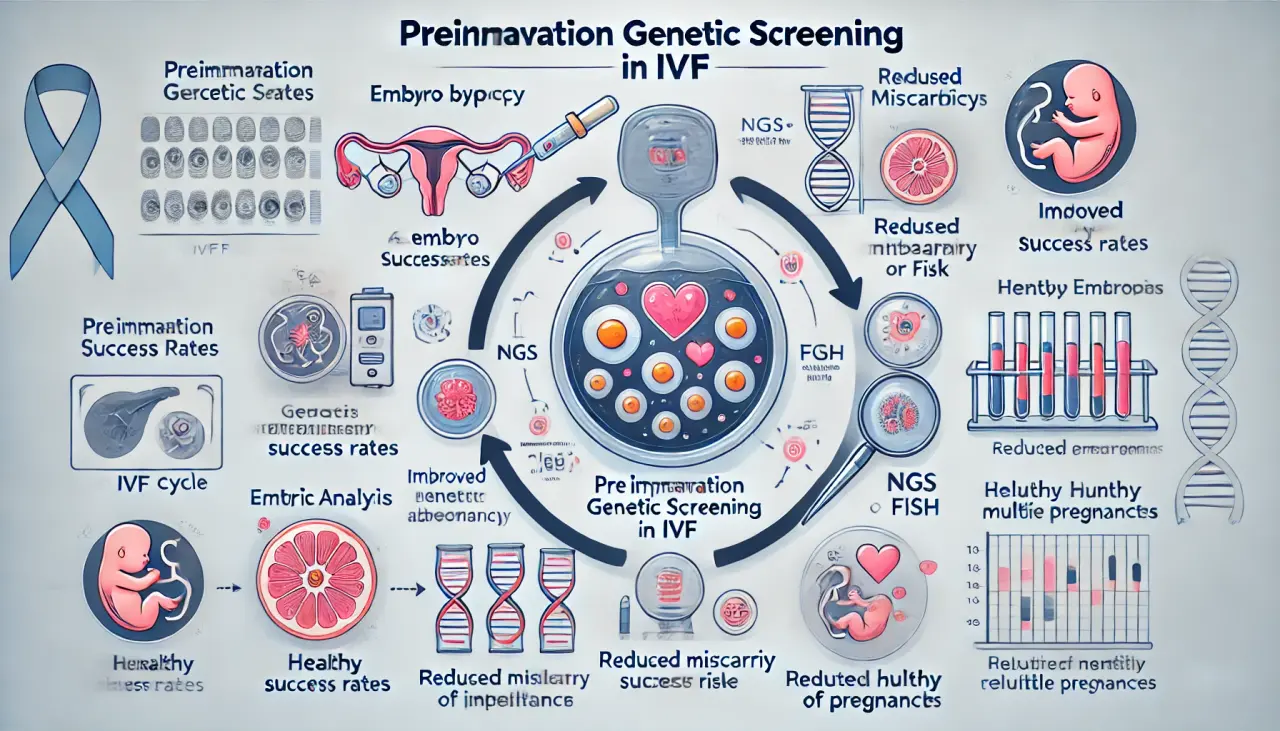
What is PGS Screening in IVF? Benefits of Preimplantation Genetic Screening (PGS)
PGS (Preimplantation Genetic Screening) is an essential genetic test performed on embryos during an IVF cycle to detect chromosomal abnormalities. This article explains what PGS screening is, why it’s important, and how it can improve the chances of IVF success.
1. What is PGS?
PGS is a screening process that involves genetic testing of embryos. Once embryos reach a specific development stage (such as the blastocyst stage), doctors use embryo biopsy techniques to extract a few cells. These cells are then analyzed in a laboratory using advanced genetic methods, including next-generation sequencing (NGS) or fluorescence in situ hybridization (FISH). The primary goal of Preimplantation Genetic Screening is to examine the number and structure of chromosomes in the cells.
Through this process, doctors can identify embryos with normal chromosomes and select the healthiest ones for implantation. This significantly increases the likelihood of IVF success by reducing the chances of chromosomal abnormalities affecting the pregnancy.
2. Why Should You Consider PGS Screening?
2.1 Improve IVF Success Rates
Chromosomal abnormalities are one of the leading causes of IVF failure and miscarriage. By using PGS screening to examine embryos, doctors can eliminate those with chromosomal issues and select only the healthiest embryos for implantation. This greatly improves the chances of a successful pregnancy and a healthy child.
2.2 Reduce Miscarriage Risk
Chromosomal abnormalities contribute significantly to early pregnancy loss. PGS screening helps ensure that only embryos with normal chromosomes are implanted. This lowers the risk of miscarriage and increases the chances of carrying a pregnancy to term.
2.3 Lower the Risk of Multiple Pregnancies
Multiple pregnancies are more common in IVF treatments, but they come with heightened health risks for both the mother and the babies. PGS helps reduce the likelihood of multiple pregnancies by allowing doctors to select one or a few embryos with normal chromosomes for implantation. This reduces the risk of complications associated with multiple pregnancies.
2.4 Provide Detailed Genetic Information
PGS screening provides patients with detailed and accurate genetic information about their embryos. This valuable insight allows patients to better understand their fertility potential and genetic risks, empowering them to make more informed decisions. It also helps reduce anxiety and stress often associated with the IVF process.
2.5 Prevent Genetic Diseases
For couples who are known carriers of genetic disorders, PGS can screen embryos for those specific conditions. This ensures that only healthy embryos are implanted, preventing the transmission of inherited diseases to future generations and increasing the likelihood of a healthy pregnancy.
By undergoing PGS screening, couples can enhance their chances of IVF success, reduce the risk of miscarriage and multiple pregnancies, and make informed choices based on comprehensive genetic information. This screening is especially valuable for those with known genetic risks, offering peace of mind and better outcomes in the IVF journey.